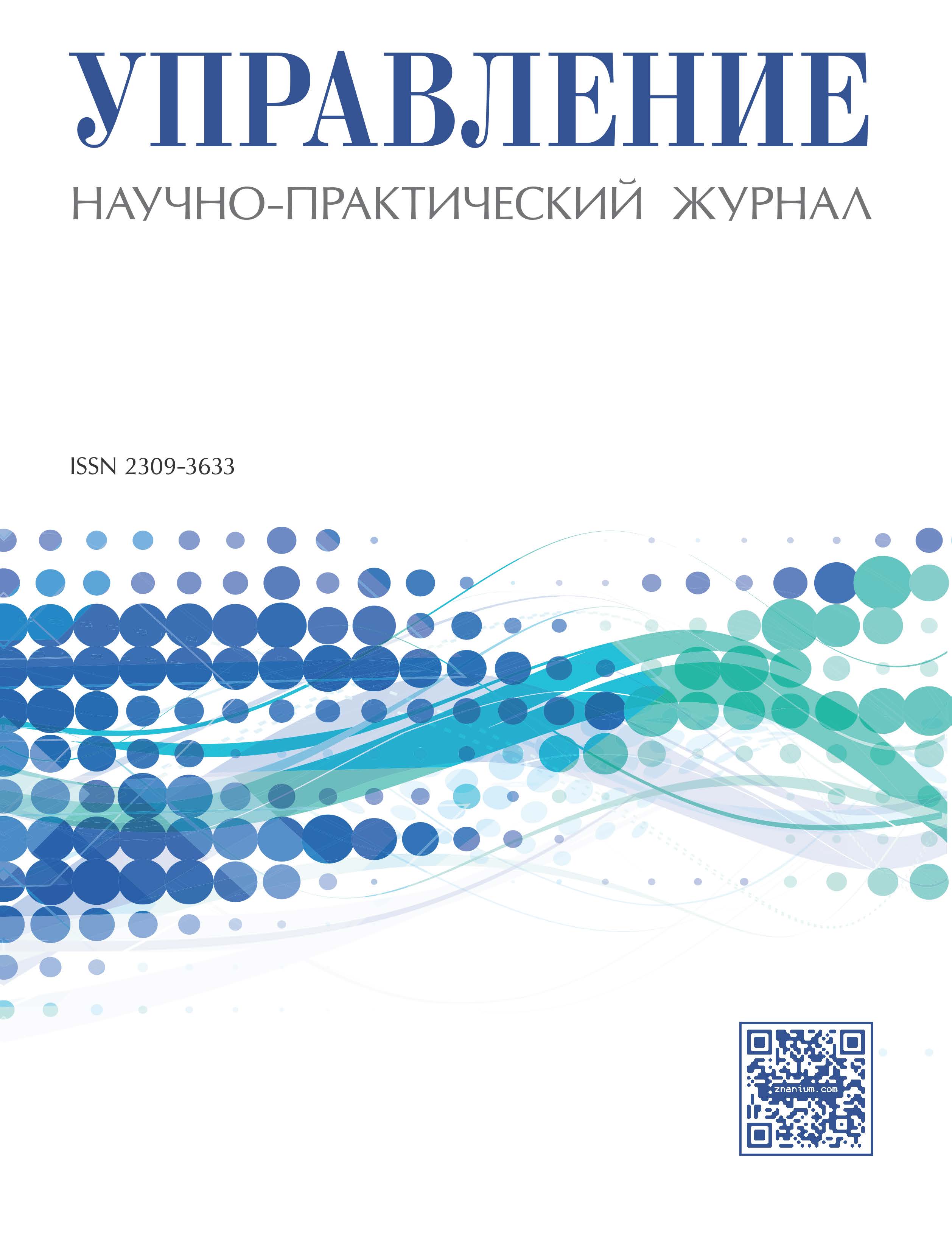The article attempts to analyze the scientific relevance and practical relevance for the modern system of public administration mainstreaming mode of governance and management style, their forms and manifestations in practice. Thus explores the underlying quality characteristics and stylistic peculiarities of functioning of the state apparatus, the difficulty of optimizing performance, problematic and contradictory nature of overcoming corruption and bureaucratic pathologies, threats, dysfunctions and other deformations in the practice of public administration. It is emphasized that at some point the corrupt and bureaucratic mechanisms become latent shadow control system, which resist very difficult. In the result remain on top of the bureaucracy, the corruption, the brutality, the callousness and irresponsibility, and the bottom begins to dominate legal nihilism, distrust of authorities, double standards. Analyzing the distinguished types of styles, the author stops at the optimally-effective style performance focuses on the value of the benefits and ways of learning, introduces into scientific circulation the concept of “style of meanness and hypocrisy” – style, based on lies, double standards, fraud, provocations and corruption. This article presents some value judgments made appropriate generalizations and conclusions, analyzes the actions taken by a state in respect of establishing proper order in the system of public administration and public service. Formulated proposals which, in the opinion of the author, will help accurately implement the tasks put by the state in terms of democratic governance and innovation updates of the struggle against formalism, bureaucratic abuse, corruption, hardware isolation.
authoritarianism, governance, bureaucracy, corruption, democracy, moral foundations to official relations, anti-corruption, professionalism, rational bureaucracy, system of government, ways of optimization style, management style, style of the non-systemic control.
Режим государственного правления: типологическое разнообразие, особенности
Последние годы вопросам политического режима и стиля государственно-управленческой деятельности уделяется недостаточно внимания. Причем не только в практическом отношении, но и в научном аспекте. Примерно такое отношение к указанной проблематике господствовало в советские времена. Лишь в годы перестройки и кардинальных рыночно-демократических трансформаций что-то начало меняться в конструктивную сторону.
1. Atamanchuk G.V. Upravlenie: filosofiya, ideologiya, nauchnoe obespechenie [Management: philosophy, ideology, scientific support]. Moscow, Academia Publ., 2015. 416 p.
2. Veber M. Izbrannye proizvedeniya [Selected Works]. Moscow, Progress Publ., 1990. 808 p.
3. Garmonenko D. Doverie k prezidentu byvaet raznoe [Confidence in the President is a different]. Nezavisimaya gazeta [Independent newspaper]. 2016, p. 3.
4. Ellinek G. Obshchee uchenie o gosudarstve [general theory of the state]. Vstupitel’naya stat’ya I.Yu. Kozlikhina [Introductory article IY Kozlihina]. St. Petersburg, Yuridicheskiy tsentr Press Publ., 2004. 752 p.
5. Kosenko O.I., Okhotskiy E.V. Stanovlenie sotsial’nogo gosudarstva v Rossii: aktual’nye problemy gosudarstvennogo upravleniya i puti ikh resheniya [Becoming a social state in Russia: actual problems of public administration and ways of their solution]. Moscow, ATiSO Publ., 2010. 143 p.
6. Kravchenko S.A. Riski v nelineynom globolokal’nom sotsiume [Risks in the nonlinear globolokalnom society]. Moscow, Ankil Publ., 2009. 224 p.
7. Leoni B. Svoboda i zakon [Freedom and Law]. Moscow, IRISEN Publ., 2008. 308 p.
8. Lichnostnye stili vedushchikh mirovykh politicheskikh liderov [Personality styles leading political leaders]. Available at: studme.org›…stili_veduschih_mirovyh…liderov
9. Magomedov K. Organizatsionnaya kul’tura v Rossii: soderzhanie, sostoyanie, vliyanie na upravlenie [Organizational culture in Russia: the content, status, influence on management]. Gosudarstvennaya sluzhba [Public service]. 2016, I. 4, p. 16.
10. Medvedev D.A. Poslanie Prezidenta RF Federal’nomu Sobraniyu RF ot 5 noyabrya 2008 goda [Message from the President of the Russian Federation to the Federal Assembly on November 5, 2008].
11. Medvedev D.A. Poslanie Prezidenta RF Federal’nomu Sobraniyu RF ot 30 noyabrya 2010 goda [Message from the President of the Russian Federation Federal Assembly of 30 November 2010].
12. O vozmozhnykh reformakh v pravitel’stve. Printsip vertikal’nogo upravleniya ogranichivaet lyubye strukturnye transformatsii [On the possible reforms in the government. vertical management principle of limiting any structural transformation]. Nezavisimaya gazeta [Independent newspaper]. 2016, p. 2.13. Okhotskiy E.V. Gosudarstvennyy sluzhashchiy: status, professiya, prizvanie : Uchebno-metodicheskiy kompleks [Civil servant: status, profession, vocation: Educationalmethodical complex]. Moscow, Ekonomika Publ., 2011. 702 p.
13. Okhotskiy E.V. Gosudarstvennyy sluzhashchiy: status, professiya, prizvanie : Uchebno-metodicheskiy kompleks [Civil servant: status, profession, vocation: Educationalmethodical complex]. Moscow, Ekonomika Publ., 2011. 702 p.
14. Putin V.V. Poslanie Prezidenta RF Federal’nomu Sobraniyu RF ot 4 aprelya 2001 goda [Message from the President of the Russian Federation Federal Assembly on April 4, 2001].
15. Putin V.V. Poslanie Prezidenta RF Federal’nomu Sobraniyu RF ot 12 dekabrya 2013 goda [Message from the President of the Russian Federation to the Federal Assembly on 12 December 2013].
16. Putin V.V. Poslanie Prezidenta RF Federal’nomu Sobraniyu RF ot 1 dekabrya 2016 goda [Message from the President of the Russian Federation Federal Assembly on December 1, 2016].
17. Ukaz Prezidenta RF ot 11 avgusta 2016 g. № 403 «Ob Osnovnykh napravleniyakh razvitiya gosudarstvennoy grazhdanskoy sluzhby Rossiyskoy Federatsii na 2016 - 2018 gody» [Presidential Decree of August 11, 2016 № 403 “On the main directions of development of the state civil service of the Russian Federation for 2016 - 2018”].
18. Khesse K. Osnovy konstitutsionnogo prava FRG [Germany Foundations of Constitutional law]. Moscow, Progress Publ., 1981. 386 p.
19. Chernenko K.U. Voprosy raboty partiynogo i gosudarstvennogo apparata [Questions work the party and state apparatus]. Moscow, Politizdat Publ., 1980. 398 p.
20. Shakhray S.M. O Konstitutsii : Osnovnoy zakon kak instrument pravovykh i sotsial’no-politicheskikh preobrazovaniy [On the Constitution, the Basic Law as a tool for legal and sociopolitical transformation]. Moscow, Nauka Publ., 2013. 919 p.
21. Ebzeev B.S. Chelovek, narod, gosudarstvo v konstitutsionnom stroe Rossiyskoy Federatsii [Man, the people, the state in the constitutional order of the Russian Federation]. Moscow, Yuridicheskaya literature Publ., 2005. 576 p.
22. Ebzeev B.S. Lichnost’ i gosudarstvo v Rossii: vzaimnaya otvetstvennost’ i konstitutsionnye obyazannosti [Personality and state in Russia: mutual esponsibility and constitutional duties]. Moscow, Norma Publ., 2007. 384 p.







